Flow: The Cultural Story of Menstruation (15 page)
Read Flow: The Cultural Story of Menstruation Online
Authors: Elissa Stein,Susan Kim
Tags: #Health; Fitness & Dieting, #Women's Health, #General, #History, #Historical Study & Educational Resources, #Politics & Social Sciences, #Women's Studies, #Personal Health, #Social History, #Women in History, #Professional & Technical, #Medical eBooks, #Basic Science, #Physiology

ADVERTISING
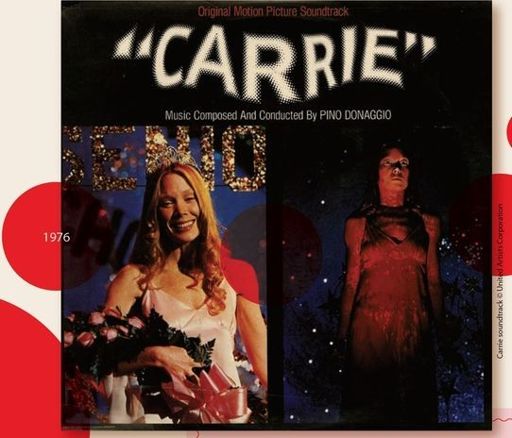
MENSTRUATION IN THE MOVIES
Carrie, directed in 1976 by Brian De Palma and based on the Stephen King novel, is a suburban horror movie about menstruation, the taboos surrounding it, and the power it can unleash. High school loser Carrie White is the butt of the school’s derision when she gets her first period in gym class; but woe to all those who mock her at the prom! To some, it’s a cheesy camp-fest; to us, it’s one of the best horror films ever made, a true fairy tale for grown-ups and an extraordinary meditation on the awesome power of budding female sexuality.


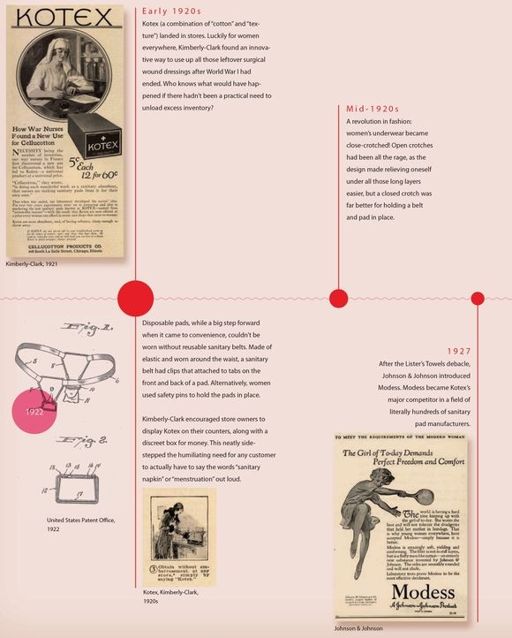


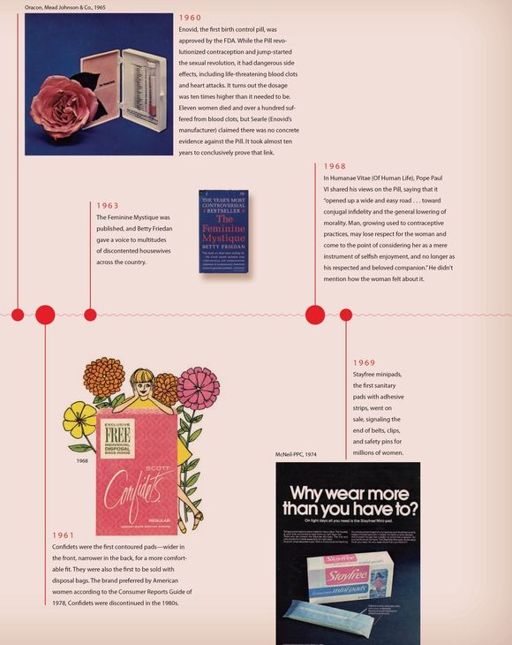
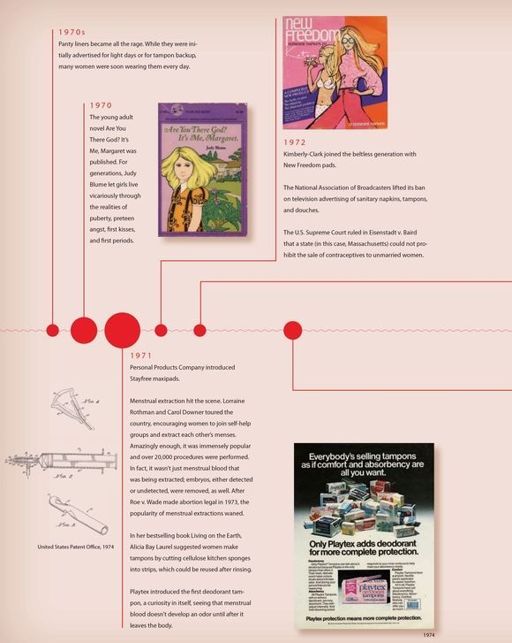
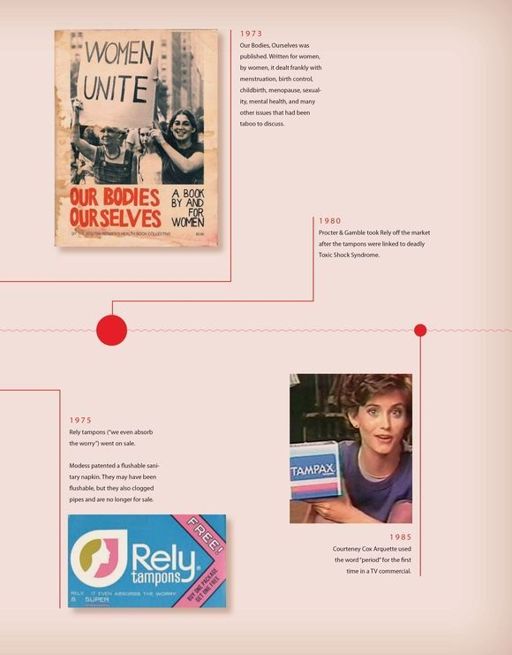
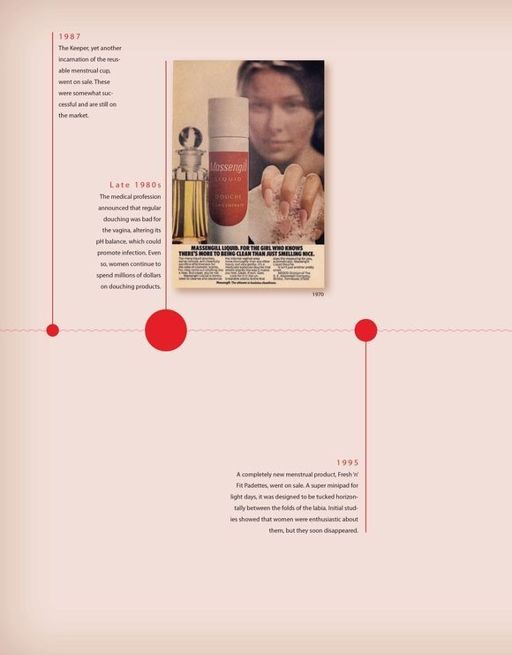

Tampax makes life worth living.
—TAMPAX AD (1939)
H
EY WE WEREN’T BORN YESTERDAY.
We understand that TV commercials aren’t teeny, tiny documentaries intended to mirror life. Advertising is meant to sell, first and foremost, and not just a specific brand of tampons, pickles, or life insurance. If it’s done right, a good ad also manages to sell emotions, fantasies, fears, and lifestyles.
We understand this, we really do; and yet we also can’t help noticing the fact that women are incredibly diverse when it comes to how they experience menstruation. When it comes to our flow, we have a wide range of symptoms, attitudes, problems, and joys, even at different times in our own lives. So why is this never once referred to in femcare ads? Why are the women featured never moody, angry, introspective? Or bloated, or constipated, or covered with a fresh crop of pimples? Or doubled over with cramps, or manic with creative energy? When P&G tells us to “have a happy period. Always,” are they being sincere? Or is this the ad-speak version of “have a nice day,” in which the point is to end the discussion as fast as possible without being overtly rude? If menstrual advertising doesn’t reflect real life in any sense of the word—involving real women, recognizable situations, and actual goo—what does it do, anyway?
Procter & Gamble Company

We’re glad you asked, because we’ve been mulling this over a long time. What we realized femcare ads actually do, and quite efficiently, is rigorously drill us on the constantly evolving vocabulary of new product improvements and development.